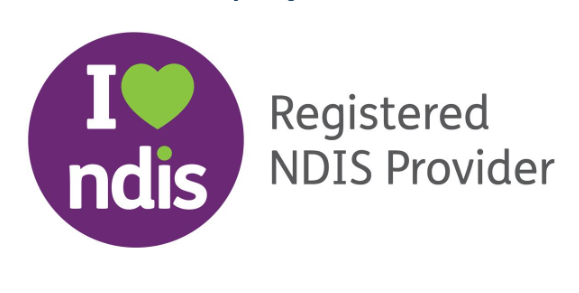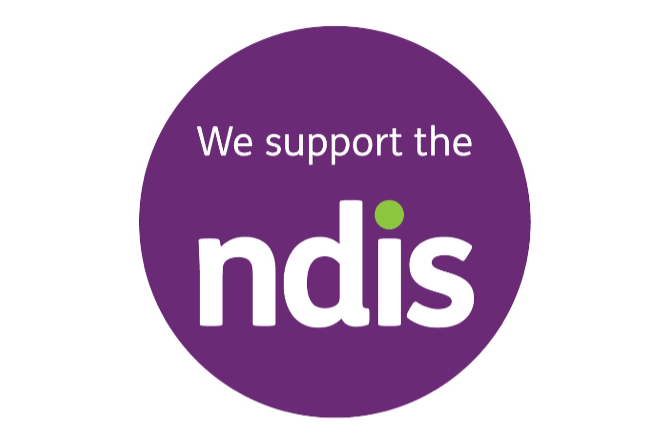NDIS-Funded Music and Art Therapy: Changes from 1st February 2025

The National Disability Insurance Scheme (NDIS) continues to evolve, ensuring that participants receive the best support and services tailored to their needs. One of the most exciting areas under the NDIS is music and art therapy, which has been instrumental in improving the well-being, communication, and emotional regulation of individuals with disabilities. As of 1st February 2025, significant changes will be implemented regarding NDIS funding for these therapies. This blog explores these updates, what they mean for participants, and how to access funding effectively. What is Music and Art Therapy Under the NDIS? Music and art therapy are interventions that use creative expression to support individuals with disabilities in achieving their goals. These therapies are widely recognized for their benefits in improving cognitive, social, and emotional well-being. Music Therapy Music therapy involves using musical activities, including singing, playing instruments, and composing, to enhance communication, motor skills, and emotional expression. It is particularly beneficial for individuals with autism, intellectual disabilities, and mental health conditions. Art Therapy Art therapy encourages self-expression through painting, drawing, sculpture, and other creative mediums. It can assist participants in improving fine motor skills, processing emotions, and developing social interactions. Changes to NDIS Funding for Music and Art Therapy in 2025 From 1st February 2025, the NDIS will introduce new guidelines that will impact the eligibility, funding structure, and claiming process for music and art therapy. These changes are aimed at improving accessibility, accountability, and quality of service provision. Expanded Eligibility Criteria Previously, access to NDIS-funded music and art therapy was limited to participants with specific conditions, such as autism and intellectual disabilities. However, the updated guidelines will allow more individuals, including those with mental health conditions, neurological disorders, and acquired brain injuries, to access funding for these therapies. Increased Funding for Therapy Sessions One of the most significant updates is the increase in funding allocations for music and art therapy sessions. The NDIS will provide higher financial support per session, making it more affordable for participants to engage in therapy regularly. Improved Clarity on Provider Registration To ensure high-quality service delivery, only NDIS-registered music and art therapists will be eligible for funding. This means participants must select providers who meet the updated accreditation standards, ensuring they receive therapy from trained professionals. Introduction of Group Therapy Funding Group therapy sessions will now receive dedicated funding, encouraging social interaction and collaboration among participants. This change is particularly beneficial for individuals who thrive in group settings and find peer engagement helpful in their therapy journey. Enhanced Flexibility in Therapy Delivery The NDIS will also allow for hybrid therapy models, including online sessions, in-home services, and community-based therapy. This flexibility aims to accommodate participants in regional areas and those with mobility challenges. How to Access NDIS Funding for Music and Art Therapy To benefit from these new changes, NDIS participants should follow these steps: Review Your NDIS Plan Check your current plan to see if you have allocated funding under Capacity Building – Improved Daily Living or Core Supports – Assistance with Social & Community Participation, as these categories typically cover music and art therapy. Consult with Your Support Coordinator If you are unsure whether your plan covers these therapies, speak with your NDIS support coordinator or local area coordinator (LAC) to discuss adding or increasing funding for music and art therapy. Choose a Registered Provider Central Coast Music Therapy is one of such approved providers on the Central Coast. With the new regulations, it is essential to select a NDIS-approved therapist. You can search for registered providers on the NDIS Provider Finder or ask your support network for recommendations. Schedule an Assessment Most NDIS-funded therapies require an initial assessment to determine your specific needs and goals. Your therapist will conduct an evaluation and tailor a therapy plan that aligns with your NDIS plan objectives. Submit a Funding Request (If Necessary) If your current NDIS plan does not include music or art therapy funding, you may need to submit a plan review request to have it included. Ensure you provide supporting documentation from healthcare professionals to justify the need for these therapies. Benefits of Music and Art Therapy for NDIS Participants The inclusion of music and art therapy in NDIS plans provides numerous benefits for participants, including: Enhanced Communication Skills – Particularly useful for non-verbal individuals or those with speech difficulties. Improved Emotional Regulation – Helps participants process emotions, reducing anxiety and stress. Social Connection – Group therapy fosters interaction, reducing feelings of isolation. Boosted Cognitive Function – Supports memory, problem-solving, and attention span. Motor Skill Development – Art and music activities improve both fine and gross motor skills. Key Takeaways From 1st February 2025, the NDIS will expand funding for music and art therapy, including broader eligibility, higher funding per session, and support for group therapy. Only NDIS-registered therapists will be eligible for funding to maintain quality standards. Participants can access therapy through individual or group sessions, online, in-home, or community settings. It is crucial to review your NDIS plan, consult with a support coordinator, and choose a registered provider to take advantage of these changes. Final Thoughts The changes to NDIS-funded music and art therapy are a step forward in making creative therapies more accessible and impactful for participants. If you or a loved one could benefit from these therapies, now is the time to explore how to integrate them into your NDIS plan. Stay informed, work with your support team, and embrace the power of music and art in enhancing your quality of life. For more information, visit the NDIS official website or speak with a registered NDIS provider today!
NDIS Price Guide: Everything You Need to Know

The NDIS Price Guide 2024 is an essential resource for participants, providers, and caregivers navigating the National Disability Insurance Scheme (NDIS) in Australia. This guide outlines pricing regulations, funding categories, and updated support rates to ensure fair access to disability services. Understanding the latest changes in the NDIS Pricing Arrangements and Price Limits is crucial for maximising support and funding efficiency. What Is the NDIS Price Guide? The NDIS Price Guide, officially referred to as the NDIS Pricing Arrangements and Price Limits, is an annually updated document that sets the maximum prices providers can charge for funded supports. These pricing structures ensure participants receive value-for-money services while maintaining provider sustainability. Why Is the NDIS Price Guide Important? Ensures fair and transparent pricing for disability support services. Helps participants plan their NDIS budgets effectively. Guides providers in delivering compliant and cost-effective services. Supports market sustainability by balancing affordability with quality care. Key Updates in the NDIS Price Guide 2024 Adjusted Price Limits The 2024 NDIS pricing updates include adjustments to reflect inflation, wage increases in the disability sector, and market conditions. Commonly funded services, such as personal care, community access, and therapeutic supports, have updated price limits to ensure sustainability. Support Worker Rate Adjustments Due to rising wages and increased demand for skilled workers, the hourly rates for support workers have been revised. This includes casual loading and allowances for higher-skilled workers to improve service quality. Changes in Travel and Transport Charges The 2024 guide introduces revised travel reimbursement rates, ensuring fair compensation for providers while maintaining affordability for participants. Key updates include: Increased per-kilometer reimbursement rates for providers traveling to participants. Clearer guidelines on charging for travel time and transport support. Therapy and Allied Health Pricing The NDIS Pricing Arrangements 2024 include adjustments for physiotherapy, occupational therapy, speech therapy, and psychology services. These changes ensure competitive compensation for qualified professionals while maintaining accessibility for participants. Introduction of New Support Categories The 2024 NDIS Price Guide expands funding options in emerging support areas, including assistive technology consultations, employment support, and specialised disability accommodations (SDA). These new categories cater to the evolving needs of participants and promote greater independence. Understanding NDIS Support Categories The NDIS Price Guide 2024 structures funding into different support categories, each with specific pricing regulations: Core Supports These essential services assist participants with daily living, social participation, and community engagement. The key Core Support categories include: Assistance with Daily Life: Covers personal care, household tasks, and meal preparation. Transport: Supports travel assistance for work, education, or social participation. Consumables: Includes essential items like continence aids and assistive technology. Assistance with Social & Community Participation: Covers activities that encourage social inclusion. Capacity Building Supports These supports focus on developing skills, independence, and employment opportunities. Key subcategories include: Improved Daily Living: Covers therapeutic supports such as physiotherapy and psychology. Improved Health & Wellbeing: Includes exercise physiology and personal training. Improved Relationships: Supports participants in building social skills and emotional resilience. Finding & Keeping a Job: Helps individuals access employment support programs. Capital Supports This category funds higher-cost assistive technology, home modifications, and vehicle modifications. Major Capital Support areas include: Assistive Technology: Covers mobility aids, communication devices, and prosthetics. Specialist Disability Accommodation (SDA): Provides funding for accessible housing solutions. How to Use the NDIS Price Guide Effectively Plan Your Budget Wisely NDIS participants should work closely with NDIS plan managers or support coordinators to maximise their funding. Reviewing the latest price limits ensures that funds are used efficiently without exceeding budget constraints. Compare Provider Rates Providers must adhere to NDIS price limits, but rates may vary based on experience, service quality, and location. Participants should compare provider rates and service quality before making a selection. Understand Service Agreements Participants engaging with registered providers must sign service agreements that outline pricing, service expectations, and cancellation policies. Ensure that all costs align with the NDIS Price Guide to avoid unexpected fees. Stay Informed About Annual Updates The NDIS Pricing Arrangements change annually to reflect economic conditions, wage growth, and market trends. Staying updated ensures participants and providers adapt to pricing changes without service disruptions. Choosing the Right NDIS Provider With the NDIS Price Guide 2024 in effect, selecting a reputable provider is crucial for receiving high-quality, cost-effective services. When choosing an NDIS provider, consider: Compliance with NDIS pricing regulations Positive participant reviews and testimonials Experience in delivering disability support services Flexible and personalised service options Clear and transparent pricing structures Final Thoughts The NDIS Price Guide 2024 is a vital tool for both participants and providers navigating disability support funding. By understanding pricing updates, support categories, and provider obligations, individuals can make informed decisions to optimise their NDIS plans. For expert guidance on accessing NDIS-funded medical supplies, incontinence products, and disability support services, visit Caring Arms. Our team is dedicated to helping participants receive the best care within their NDIS funding limits.
Discover Disability-Friendly Accessible Locations in and Around Gosford, Central Coast NSW

Gosford, located on the scenic Central Coast of New South Wales, offers a welcoming atmosphere for people of all abilities. The region has made strides to improve accessibility, providing disability-friendly locations that cater to a wide range of needs. Whether you’re a resident or a visitor, Gosford and its surrounding areas have plenty to offer. From wheelchair-accessible parks to inclusive recreational facilities, this guide highlights some of the best disability-friendly locations in and around Gosford. Accessible Outdoor Adventures Central Coast Leagues Club Park Situated in the heart of Gosford, this park boasts wide, level pathways perfect for wheelchairs and mobility aids. The playground includes sensory-friendly equipment and features like interactive musical instruments, making it ideal for children with diverse needs. Sensory Gardens at Edogawa Commemorative Garden Nestled within the Gosford Regional Gallery, this tranquil Japanese-inspired space is fully wheelchair accessible. The sensory garden within offers fragrant flowers, textured plants, and the soothing sounds of running water. Bouddi National Park For nature enthusiasts, Bouddi National Park offers the accessible Bouddi Coastal Walk. The trail includes boardwalk sections and well-maintained paths, making it suitable for wheelchairs or mobility aids. Inclusive Beaches Terrigal Beach Terrigal Beach offers beach wheelchairs that can be booked in advance, allowing visitors with mobility impairments to enjoy the sand and surf. The nearby promenade features smooth pathways and accessible bathrooms. Avoca Beach Avoca Beach caters to individuals with disabilities, providing beach wheelchair services and accessible amenities like level parking, paved walkways, and accessible viewing platforms. Accessible Attractions and Experiences Australian Reptile Park Located near Gosford, the Australian Reptile Park features accessible pathways that allow wheelchair users to explore exhibits easily. The park offers designated viewing areas for close encounters with animals. Mount Penang Gardens Mount Penang Gardens in Kariong offers wheelchair-accessible paths winding through beautifully landscaped gardens. Accessible picnic areas and restrooms make it a perfect day out for everyone. Gosford Regional Gallery and Arts Centre This fully accessible venue showcases local and international art exhibitions. With ramps, elevators, and accessible restrooms, it ensures an inclusive cultural experience. Disability-Friendly Dining Options The Coast Bar & Restaurant Located in Gosford’s waterfront precinct, The Coast Bar & Restaurant provides step-free access, wheelchair-accessible seating, and spacious layouts. BamVino Cellar Door & Restaurant BamVino in Erina Heights offers an accessible entrance, spacious interiors, and an accommodating staff. The rustic charm combined with inclusivity makes it a popular dining spot. Accommodation Options Ibis Budget Gosford Ibis Budget Gosford provides affordable, disability-friendly accommodation, offering accessible rooms with features like grab rails, roll-in showers, and wider doorways. Crowne Plaza Terrigal Pacific For a more luxurious stay, the Crowne Plaza Terrigal Pacific includes accessible accommodations, parking, elevators, and a pool with a lift. Accessible Transport Options Getting around Gosford and the Central Coast is easy, thanks to accessible public transport options. Local train stations, including Gosford and Woy Woy, are wheelchair-friendly with elevators and ramps. Visit the NSW Transport Accessibility page for more details. Community Support Services Gosford is home to various disability support services and organizations. The Central Coast Disability Network offers resources, advocacy, and support to ensure everyone can participate fully in the community. Central Coast’s local Disability Support organizations like Caring Arms is just one phone call away to assist you if needed Conclusion Gosford and the surrounding Central Coast region are committed to fostering inclusivity and accessibility. From serene gardens to bustling beaches and exciting attractions, there’s something for everyone to enjoy. With thoughtful planning and the area’s disability-friendly facilities, visitors of all abilities can experience the beauty and charm of this remarkable destination. Start planning your visit to Gosford today and discover a world of accessible adventures waiting to be explored!
Disability Support Services in Central Coast: Your Guide to Disability Services on the Coast

Living with a disability or caring for someone with a disability can be challenging, but it’s reassuring to know that the Central Coast has a wide range of disability support services. These services offer personalized care, skill development, community engagement, and more to help individuals achieve greater independence and quality of life. If you or a loved one are seeking support, this guide will help you understand what’s available in the area and how to find the right provider for your unique needs. Understanding Disability Support Services Disability support services play an essential role in assisting individuals with disabilities to live fulfilling lives. These services cater to people with various physical, intellectual, sensory, and psychosocial disabilities, offering tailored support for everyday tasks, employment, education, social inclusion, and more. In Australia, disability support services are often funded through the National Disability Insurance Scheme (NDIS), which provides financial assistance for people with a permanent and significant disability. Under the NDIS, participants receive funding to access the support they need, such as personal care, therapy, equipment, and other services that can help improve their quality of life. What Services Are Available on the Central Coast? The Central Coast is home to numerous disability support services designed to meet a wide range of needs. Some of the services provided include: Personal Care and Domestic Assistance For individuals who require help with daily living activities, personal care services are available to assist with tasks such as bathing, dressing, grooming, and mobility. Domestic assistance includes help with household chores like cleaning, laundry, and meal preparation, allowing individuals to live more independently in their own homes. Therapeutic Supports A variety of therapeutic supports, such as occupational therapy, physiotherapy, speech therapy, and psychology services, are available to help individuals improve their physical, cognitive, and emotional well-being. These services are designed to enhance an individual’s independence and quality of life by addressing specific challenges related to their disability. Community Participation and Social Inclusion Disability support services in the Central Coast aim to help individuals engage with their community, participate in social activities, and build meaningful relationships. Providers offer group activities, social outings, and skill-building workshops to foster community inclusion and reduce isolation. Supported Independent Living (SIL) For those who wish to live independently but need some assistance, supported independent living (SIL) services provide the help required to live in a shared or individual setting. SIL services include assistance with daily tasks, budgeting, cooking, and accessing the community, allowing individuals to enjoy greater autonomy. Respite Care Caring for a loved one with a disability can be both rewarding and exhausting. Respite care services offer temporary relief to caregivers by providing short-term accommodation or in-home support for the individual receiving care. This allows caregivers to take a break while ensuring their loved ones receive the care and attention they need. Plan Management and Support Coordination Navigating the NDIS can be complex, especially when it comes to managing funding and finding the right providers. Plan management and support coordination services help individuals make the most of their NDIS funding by providing guidance on budgeting, service selection, and connecting with local providers. Here are some helpful links to NDIS providers offering Plan Management and Support Coordination on the Central Coast: My Plan Manager: Specializing in NDIS plan management, My Plan Manager assists participants with managing their NDIS budgets, ensuring payments are made on time, and offering guidance on how to maximize their funding. Plan Partners: Offering both plan management and support coordination, Plan Partners helps NDIS participants with the financial and logistical aspects of their plans, enabling them to focus on achieving their goals. Just COS : This Central Coast provider offers comprehensive support coordination services to connect participants with the right NDIS services and help them achieve the best possible outcomes. Breakthru : Another amazing support coordination based in Tuggerah Choosing the Right NDIS Provider on the Central Coast With so many disability support services available on the Central Coast, it’s important to choose a provider that aligns with your specific needs and goals. Here are some key factors to consider when selecting a provider: Reputation and Experience Look for providers with a strong track record of delivering high-quality services. You can ask for recommendations from friends, family, or your support network, and read online reviews to learn more about the provider’s reputation. It’s also helpful to choose a provider with experience in supporting individuals with similar needs to yours. Range of Services Consider whether the provider offers a comprehensive range of services that meet your needs. Some providers specialize in specific areas, such as therapy or social inclusion, while others offer a broader range of support options. It’s important to find a provider that can offer the right mix of services for your situation. Flexibility and Personalization Disability support services should be tailored to each individual’s unique needs. Look for providers that offer flexible, person-centered support plans that are designed around your preferences and goals. This ensures that you receive the care and assistance you need in a way that suits you. NDIS Registration Ensure that the provider is registered with the NDIS. Registered providers must meet strict quality and safety standards, so choosing a registered provider gives you peace of mind that you’re receiving high-quality care. Location and Accessibility When selecting a provider, it’s important to consider the location and accessibility of their services. Choose a provider that operates in your area or offers services that are easy to access. Some providers also offer mobile or in-home services, which can be particularly beneficial if you have mobility challenges. Top NDIS Providers in Central Coast Here are some of the top NDIS providers in the Central Coast region, offering a wide range of services to support individuals with disabilities: Caring Arms Disability Support Services Caring Arms is a trusted NDIS provider based on the Central Coast, offering a comprehensive range of disability support services, including personal care, community participation, and therapeutic supports. Their team of dedicated professionals is committed to
Who is an SDA Provider and How Do They Differ from a SIL Provider? Can Participants Choose Their Own SIL Provider?

The National Disability Insurance Scheme (NDIS) is designed to support Australians with disabilities, giving them access to various services to improve their quality of life. Among these services are Supported Independent Living (SIL) and Specialist Disability Accommodation (SDA), which cater to different needs of NDIS participants. But what exactly is an SDA provider, how do they differ from SIL providers, and can participants choose their own SIL provider? This article dives into these distinctions, providing clarity and examples of providers, particularly in the Central Coast region. What is an SDA Provider in NDIS? Specialist Disability Accommodation (SDA) refers to housing designed for NDIS participants who have very high support needs. SDA homes are tailored to be physically accessible and safe for individuals with significant disabilities. These accommodations come with specialized features such as wider doorways, step-free entrances, adjustable benches, and assistive technologies that allow individuals to live more independently. SDA Providers are organizations or entities that build, own, and manage these specialized accommodations. They ensure that the housing environment meets the needs of the participants, adhering to strict NDIS standards for disability accommodation. These providers are responsible for: Offering safe and secure housing options. Maintaining and modifying the property to meet the participant’s requirements. Collaborating with support service providers, such as SIL providers, to ensure the participant receives adequate support while living in the SDA property. SDA homes are not general housing options but are specifically designed for those with severe disabilities who need specialized accommodation to live comfortably and safely. What is a SIL Provider in NDIS? Supported Independent Living (SIL) refers to the day-to-day support that NDIS participants receive in their home to help them live as independently as possible. SIL services include assistance with tasks such as personal care, cooking, cleaning, and managing medications. The key aim of SIL is to provide individuals with the help they need to lead a fulfilling life, while enabling them to maintain as much independence as possible. SIL Providers are organizations or professionals who offer these services within the participant’s home, which can be an SDA property, a private rental, or other residential settings. These providers typically offer 24/7 support, working with participants to meet their daily living needs. Some SIL services are shared with other participants living in the same house, while others are tailored to individuals living alone. SIL providers are responsible for: Providing personal care and support. Ensuring that the participant is safe and comfortable in their living environment. Offering daily assistance with household tasks, meal preparation, and other essential activities. How Do SDA and SIL Providers Differ? While both SDA and SIL providers serve NDIS participants, their roles and responsibilities differ significantly: SDA Providers SIL Providers Provide specialized housing designed for high-support needs. Offer personal and household support services to help participants live independently. Focus on physical infrastructure (accessible, customized homes). Focus on daily living support, such as personal care, medication management, and household tasks. Responsible for property maintenance and modifications. Responsible for providing 24/7 care and assistance within the home. Participants may need to live in an SDA property to qualify. Participants can receive SIL services in a variety of living arrangements, including SDA properties. In essence, SDA is about where you live, and SIL is about the support you receive while living there. Can Participants Choose Their Own SIL Provider? Yes, NDIS participants have the freedom to choose their own SIL provider. The NDIS is designed to give participants as much control and choice over their services as possible. This means that while a participant may live in a specific SDA property, they can select the SIL provider they feel most comfortable with to deliver their daily support. Choosing a SIL provider is an important decision, as this provider will play a significant role in the participant’s daily life. Some key factors to consider when selecting a SIL provider include: Experience and Expertise: Ensure that the SIL provider has experience working with individuals who have similar needs and requirements. Compatibility: Since the provider will be working closely with the participant, it’s essential to choose someone who is respectful, understanding, and able to build a strong rapport with the participant. Flexibility: A good SIL provider should be able to offer services that are tailored to the participant’s individual needs and preferences, ensuring they are comfortable and supported in their home. Location: It’s often beneficial to choose a provider who is familiar with the local area and can offer services efficiently, particularly in regions like the Central Coast. Participants are encouraged to review and speak to several providers before making a decision, ensuring they select one that aligns with their personal needs and preferences. Examples of SDA Providers in the Central Coast The Central Coast region offers several SDA providers catering to NDIS participants with high-support needs. Here are some examples of SDA providers in this area: Vera Living Vera Living specializes in providing customized SDA housing solutions for people with disabilities. They aim to empower participants by offering safe, accessible, and tailored homes that suit individual needs. Vera Living’s properties are designed to foster independence and social interaction. Ability SDA Ability SDA focuses on offering contemporary and purpose-built homes that align with the participant’s lifestyle and needs. They provide a range of SDA housing options, from fully accessible homes to robust, high-support environments. Examples of SIL Providers in the Central Coast, Including Caring Arms Similarly, the Central Coast is home to numerous SIL providers who offer daily living support to NDIS participants. Below are some notable examples: Caring Arms Caring Arms is a well-known SIL provider in the Central Coast that offers personalized and compassionate care to individuals living with disabilities. Their services are tailored to meet the individual needs of participants, ensuring they receive the support required to live comfortably and independently. Caring Arms focuses on providing holistic care, from personal support to household management. Conclusion SDA and SIL providers serve distinct but complementary roles within the NDIS framework. While SDA providers focus on
What is Supported Independent Living (SIL) in NDIS and Who Can Assist You in Accessing a SIL?

Navigating the National Disability Insurance Scheme (NDIS) can be complex, especially when it comes to understanding specific services like Supported Independent Living (SIL). This comprehensive guide will delve into what SIL is, how it benefits NDIS participants, and who can assist you in accessing these essential services. Additionally, we will see how Caring Arms can help you find the right support you need. What is Supported Independent Living (SIL) in NDIS? Supported Independent Living (SIL) is a crucial support service under the NDIS designed to help people with disabilities live as independently as possible while receiving the necessary support to manage their daily lives. SIL provides a range of services that assist individuals in their own homes or shared accommodations, ensuring they can maintain a good quality of life with the right level of assistance. Key Features of SIL: Personal Care: Assistance with essential daily activities such as bathing, dressing, and personal hygiene. Household Management: Help with household chores like cooking, cleaning, and managing finances. Community Access: Support for engaging in community activities, including transportation and social interactions. Skill Development: Programs and training aimed at improving personal skills and fostering greater independence. Benefits of Supported Independent Living Supported Independent Living offers numerous benefits, helping individuals with disabilities lead a more fulfilling and autonomous life. Here’s how SIL can make a difference: Enhanced Independence: SIL allows individuals to maintain a higher level of independence while receiving support for daily tasks. Customized Support: Services are tailored to each participant’s specific needs, ensuring that the support provided is appropriate and effective. Community Engagement: SIL services often include support for community participation, helping individuals build social connections and engage in meaningful activities outside their homes. Greater Control: Participants have more control over their living arrangements and the type of support they receive, fostering a sense of autonomy and empowerment. Who Can Access Supported Independent Living (SIL)? Not everyone is eligible for SIL under the NDIS. To access SIL, you generally need to meet the following criteria: NDIS Plan: You must have an NDIS plan that includes funding for SIL. This funding is typically included in the “Core Supports” or “Capacity Building Supports” budget, depending on your needs. Assessment of Needs: A thorough assessment will be conducted to evaluate your daily living needs and the level of support required. This assessment ensures that SIL services are suitable for your situation. Accommodation Requirements: SIL can be provided in various settings, including your own home or supported accommodation. It is designed to support individuals in shared or individual living arrangements. How to Access Supported Independent Living (SIL) Accessing SIL involves several steps to ensure you receive the appropriate support: NDIS Planning and Assessment: Contact NDIS: Reach out to the NDIS or your Local Area Coordinator (LAC) to discuss your interest in SIL and get guidance on the process. Plan Review: During your NDIS planning meeting, discuss your need for SIL and how it aligns with your overall plan. A detailed assessment will be carried out to determine your specific support needs. Finding a SIL Provider: Research Providers: Use the NDIS Provider Finder tool to locate registered SIL providers. This tool helps you identify providers who offer the services you need. Compare Options: Evaluate different providers based on their services, reputation, and compatibility with your needs. It’s important to choose a provider that aligns with your personal goals and preferences. Developing a Service Agreement: Discuss Your Needs: Work with the chosen provider to create a service agreement. This agreement outlines the supports and services you will receive, including delivery methods and costs. Review and Sign: Carefully review the agreement to ensure it meets your expectations. Once satisfied, sign the agreement to formalize your arrangement. Ongoing Support and Review: Regular Reviews: Your NDIS plan and SIL support should be reviewed periodically to ensure they continue to meet your needs. This may involve adjustments based on changes in your situation or preferences. Provide Feedback: Share feedback with your SIL provider to address any issues or changes needed. Your NDIS plan manager or support coordinator can assist with making necessary adjustments. Who Can Assist You in Accessing SIL? Several professionals and organizations can help you navigate the process of accessing Supported Independent Living: NDIS Planners and Local Area Coordinators (LACs): These professionals assist with understanding your options and connecting you with appropriate supports. They guide you through the planning process and help you find suitable SIL providers. Support Coordinators: Support coordinators help implement your NDIS plan and manage your services. They play a key role in finding and managing SIL services, ensuring that you receive the support you need. NDIS Registered Providers: SIL providers deliver the support services and work closely with you to tailor their services to your needs. Advocacy Services: Disability advocacy organizations offer support and advice throughout the process, helping you understand your rights and ensure you receive the services you’re entitled to. SIL Providers in Central Coast If you’re located in the Central Coast area and are seeking SIL services, there are several reputable providers to consider, and Caring Arms is one of them who personalise supports around your needs Caring Arms is a prominent SIL provider in the Central Coast region, known for its personalized support services. They offer a range of services to help individuals live independently and improve their quality of life. Their support includes personal care, household management, community access, and skill development. Website: Caring Arms Phone: 02 4304 8100 Conclusion Supported Independent Living (SIL) is a vital service under the NDIS that helps individuals with disabilities live independently while receiving necessary support. Understanding what SIL entails, who can access it, and how to navigate the process can greatly enhance your quality of life. Whether you’re exploring options for SIL in the Central Coast or seeking guidance on accessing these services, knowing your choices and resources is crucial. By working with professionals like NDIS planners, support coordinators, and reputable SIL providers such as Caring Arms, you can find the right support to
How to Contact NDIS: A Comprehensive Guide

The National Disability Insurance Scheme (NDIS) is a crucial service that supports Australians with disabilities. Understanding how to contact the NDIS effectively can help you navigate the system more smoothly, whether you are a participant, a caregiver, or a service provider. This guide will cover all the ways to get in touch with the NDIS, ensuring you have the information you need at your fingertips. Why Contact NDIS? There are numerous reasons why you might need to contact the NDIS, including: Eligibility Inquiries: Determine if you or someone you know qualifies for NDIS support. Plan Management: Discuss details about your NDIS plan, including funding and services. Service Providers: Get information on approved providers and their services. Complaints and Feedback: Address any issues or provide feedback about the NDIS services. General Information: Ask for general information about NDIS policies and procedures. Ways to Contact NDIS NDIS Website The official NDIS website is a valuable resource for information and assistance. You can access a wealth of resources, including FAQs, contact forms, and more detailed guidance on navigating the NDIS. The website often includes updates and news that can be crucial for both new and existing participants. Visit the NDIS Website: NDIS Official Website Phone Contact For immediate assistance or urgent inquiries, calling the NDIS helpline is a practical option. The phone lines are staffed by trained professionals who can provide support and answer your questions. NDIS Contact Number: 1800 800 110 NDIS Portal If you are already an NDIS participant, the NDIS My Place Portal is a secure platform where you can manage your plan, check your funding, and communicate with NDIS staff. The portal provides a direct way to interact with the scheme. Log in to NDIS My Place Portal: My Place Portal Email Contact For non-urgent inquiries or written communication, emailing the NDIS can be effective. Ensure you include relevant details and contact information to receive a prompt response. NDIS Email Contact: [email protected] Postal Mail You can also contact NDIS through postal mail for formal requests or documents. Make sure to include all necessary details and use the correct mailing address to avoid delays. Mailing Address: National Disability Insurance Agency GPO Box 700 Canberra ACT 2601 Australia In-Person Visits In some cases, visiting an NDIS office in person can be helpful. While not always necessary, face-to-face meetings can be arranged if required. Find an NDIS Office Near You: Use the NDIS Office Locator to locate a nearby office. Social Media The NDIS is also active on social media platforms. Following their accounts can provide updates, news, and community support. NDIS on Facebook: NDIS Facebook Page NDIS on Twitter: NDIS Twitter Account Tips for Effective Communication with NDIS Prepare Your Information Before contacting NDIS, gather all relevant information, including your NDIS number, details about your plan, and any specific questions you have. This will help ensure your inquiry is handled efficiently. Be Clear and Concise When communicating with NDIS, whether by phone, email, or mail, be clear and concise. Provide all necessary details to avoid back-and-forth exchanges that could delay the resolution of your issue. Follow Up If you don’t receive a response within the expected timeframe, follow up on your inquiry. Keeping track of your communication can help ensure your concerns are addressed promptly. Common Issues and How to Resolve Them Delayed Response If you experience delays in receiving a response, consider following up or using alternative contact methods, such as calling or visiting an office. Complex Queries For complex queries, it may be helpful to seek assistance from a support coordinator or an NDIS representative who specializes in your area of concern. Feedback and Complaints If you have feedback or a complaint about the NDIS services, make sure to provide detailed information about your experience and how it can be improved. The NDIS is committed to addressing concerns and improving their services. Conclusion Knowing how to contact the NDIS is essential for managing your interaction with the scheme effectively. Whether you prefer to reach out via phone, email, online portal, or in person, having the correct contact details and understanding the communication channels available will help ensure that your needs are addressed promptly. For further assistance and to access the most current information, please visit the NDIS Official Website and check their Contact Details Page.
What Are Continence Aids and How to Get Them as a NDIS Participant

Continence aids are essential products that help individuals manage incontinence—a condition characterized by the loss of control over bladder or bowel movements. This condition can affect people of all ages, especially those with disabilities, the elderly, and individuals recovering from surgery or childbirth. Continence aids not only provide comfort but also help maintain dignity and hygiene. Types of Continence Aids There are several types of continence aids designed to meet various needs: Absorbent Pads and Pants: These are worn inside regular underwear or as standalone garments to absorb urine or feces, keeping the skin dry and preventing irritation. Catheters: Thin tubes inserted into the bladder to drain urine directly into a bag, often used by individuals with severe mobility issues or those who cannot control bladder function. Condom Catheters: Specifically for men, this device fits over the penis and collects urine in a bag attached to the leg. Commode Chairs: Portable toilet chairs beneficial for individuals with limited mobility, allowing them to use the toilet more conveniently, especially at night. Protective Bedding: Mattress protectors and absorbent bed pads that keep the bed dry and clean, reducing the need for frequent linen changes. Skincare Products: Special creams, wipes, and washes designed to protect the skin from irritation and infection due to prolonged exposure to moisture. The National Disability Insurance Scheme (NDIS) and Continence Aids The National Disability Insurance Scheme (NDIS) is an Australian government initiative that provides support for people with disabilities. The NDIS offers funding for various products and services, including continence aids, as part of the participant’s overall care plan. To access continence aids through the NDIS, participants need to have their needs assessed and included in their NDIS plan. Here’s how to obtain these aids: Assessment and Planning The first step in acquiring continence aids through the NDIS is a thorough assessment by a healthcare professional, such as a continence nurse or an occupational therapist. This assessment determines the specific aids required based on the individual’s condition, lifestyle, and goals. Once the assessment is complete, the healthcare professional will provide a report that can be included in the participant’s NDIS plan. This report is essential as it justifies the need for continence aids and helps to secure funding. Including Continence Aids in the NDIS Plan During the NDIS planning meeting, it’s crucial to discuss the continence needs thoroughly. The planner will work with the participant to include these aids in their plan under the category of “Assistive Technology” or “Consumables,” depending on the type of aids required. The Role of Support Coordinators Support coordinators play a critical role in helping NDIS participants manage their plans and access necessary services, including continence aids. They act as a bridge between the participant, healthcare professionals, and suppliers, ensuring that the participant’s needs are met efficiently. Support coordinators assist in: Understanding the NDIS plan: They help participants understand their plan and what funding is available for continence aids. Selecting Suppliers: Coordinators help participants choose registered NDIS providers or suppliers that offer a wide range of products and provide ongoing support and advice. Managing Orders: Support coordinators ensure that orders are placed regularly and that the participant does not run out of essential supplies. They also assist with troubleshooting any issues with suppliers. Managing Funding and Orders Participants can manage their NDIS funds themselves, through a plan manager, or via the NDIS itself. It’s important to keep track of spending and ensure that orders are placed regularly. Support coordinators can help manage these tasks, ensuring that the participant’s continence needs are consistently met. Conclusion Continence aids are vital for maintaining dignity, comfort, and quality of life for those with incontinence issues. For NDIS participants, accessing these aids is a process that involves assessment, careful planning, and ongoing management. Support coordinators play an integral role in this process, helping participants navigate their NDIS plans and ensuring they receive the necessary products to live more independently and confidently.
The NDIS Price Guide: How to Access It and What You Need to Know

Navigating the National Disability Insurance Scheme (NDIS) can be challenging, particularly when it comes to understanding and managing your budget. The NDIS Price Guide is a crucial tool designed to assist participants, providers, and plan managers by outlining the maximum allowable prices for various supports and services. This blog post provides an overview of the NDIS Price Guide, its importance, and where to access it. What is the NDIS Price Guide? The NDIS Price Guide is an official document released by the National Disability Insurance Agency (NDIA). It details the maximum prices that can be charged for a range of supports and services under the NDIS. This guide ensures transparency, consistency, and fairness in pricing, helping to manage funding effectively and equitably. Key Features of the NDIS Price Guide Pricing Details: The guide outlines maximum allowable prices for different types of supports, including personal care, therapy services, and community participation. These prices are categorized to make it easier to understand how funds can be allocated. Regional Variations: To account for varying costs of living and service delivery across Australia, the guide includes regional price adjustments. This means that prices may differ depending on whether you are in a major city or a rural area. Service Delivery Modes: The guide specifies pricing for different modes of service delivery, such as in-person and remote supports. This flexibility helps accommodate diverse needs and preferences. Price Limits and Caps: Each support item has a price limit, ensuring that services are priced fairly and consistently. This helps in preventing overcharging and ensures that participants get value for their funding. Why the NDIS Price Guide Matters The NDIS Price Guide is vital for several reasons: Budget Management: It helps participants manage their budgets effectively by providing clear information on pricing limits. Fair Pricing: Ensures that providers charge fair and consistent prices for their services. Transparency: Offers transparency in how funding is allocated and used, which helps build trust between participants and providers. Where to Access the NDIS Price Guide Accessing the NDIS Price Guide is straightforward. Here’s how you can obtain it: NDIS Website: The most direct way to access the NDIS Price Guide is through the official NDIS website. Navigate to the “Pricing” section where you’ll find the latest version of the Price Guide available for download. NDIS MyPlace Portal: If you have an NDIS account, you can log into your Myplace Portal. The Price Guide is often available here, along with other relevant resources. Contact NDIS Support: If you’re having trouble accessing the guide online, you can Contact NDIS support. They can provide you with a copy or direct you to the appropriate resources. Plan Managers: Many NDIS Plan Mangers also have access to the Price Guide and can provide it to you upon request. They can also offer guidance on how to use it effectively in managing your plan. Conclusion The NDIS Price Guide is an essential resource for understanding and managing NDIS funding. By accessing the guide through the NDIS website, MyPlace portal, or through NDIS support channels, you can ensure that you are making informed decisions about your services and supports. Stay informed and make the most of your NDIS plan by regularly consulting the Price Guide and using it to manage your budget effectively. For the latest updates and detailed information, always refer to the official NDIS resources.
Navigating the NDIS Support Worker Screening Check: A Guide to Service NSW Websites and Centres

The National Disability Insurance Scheme (NDIS) Worker Screening Check is a crucial measure designed to ensure the safety and well-being of participants who rely on NDIS services. In New South Wales (NSW), this screening process is streamlined through Service NSW, both online and in-person, to efficiently handle applications and clearances for prospective workers. Here’s a comprehensive guide on how the NDIS Support Worker Screening Check is managed through the Service NSW website and Service NSW centres. Understanding the NDIS Support Worker Screening Check The NDIS Worker Screening Check is a mandatory process that evaluates whether an individual poses a risk to NDIS participants. This check assesses criminal history, any past misconduct, and prior restrictions on working with vulnerable populations. It is a fundamental step to ensure that only those who meet stringent safety criteria are employed in roles involving direct support to people with disabilities. How to Complete the Screening Check via the Service NSW Website Application Submission: The Service NSW website offers an accessible platform for individuals to start their NDIS support worker screening check application. Prospective workers can visit the Service NSW website and navigate to the Worker Screening section. Here, they can fill out the online application form, providing necessary personal details and consent for a criminal history check. Document Upload: During the online application process, applicants may need to upload identification documents and other required information. The Service NSW website provides clear instructions on the types of documents needed, ensuring that the submission process is straightforward. Payment and Submission: The online application requires payment of a fee, which can be completed through the Service NSW payment gateway. Once the application form and payment are submitted, the information is processed, and applicants receive a confirmation email outlining the next steps. Tracking Application Status: Applicants can track the status of their application through the Service NSW website. This online feature allows individuals to check the progress of their screening check and receive updates on their clearance status. How to Complete the Screening Check at Service NSW Centres In-Person Application: For those who prefer to handle the process face-to-face, Service NSW centres offer in-person assistance. Applicants can visit a Service NSW centre, where staff will guide them through the application process. They will need to provide personal information, consent for a criminal history check, and any necessary documentation. Verification and Processing: At the Service NSW centre, staff will review the application, process the criminal history check, and handle any required documentation. This in-person option can be beneficial for those who need additional support or have complex situations. Receiving Clearance: Once the criminal history check is completed and assessed, Service NSW issues a Worker Screening Clearance if the applicant meets all safety requirements. This clearance is valid for five years and must be verified by employers before hiring individuals for roles involving direct support to NDIS participants. Support and Assistance: Service NSW centres provide valuable support and assistance throughout the screening process. Staff are available to answer questions, assist with document submission, and ensure that the process runs smoothly. Why Choose Service NSW? Service NSW simplifies the NDIS support worker screening check process by providing accessible online services and convenient in-person assistance. Whether applying through the website or visiting a centre, applicants benefit from efficient processing, clear instructions, and professional support. Conclusion The NDIS Worker Screening Check is essential for maintaining high standards of care and safety for NDIS participants. Service NSW offers a user-friendly approach to completing this check, whether online or in-person, ensuring that the process is accessible and efficient. For more information or to begin the application process, visit the Service NSW website or a Service NSW centre. By leveraging these resources, prospective workers can navigate the screening process with ease, contributing to a safer and more reliable support system for people with disabilities.
